The dog rocketed across the top of the wide chute. She seemed not to touch the ground until an odd footfall displaced a rock and sent it tumbling down the steep mountain side, another chip out of these ancient ridges. She effortlessly leapt over patches of thorns near the saddle of the ridge. She didn't break stride to inspect the thorn patches because she already knew they were there. Being on her back on the tailgate with my pliers prodding her leathery pads wasn't her favorite place to be. Leaping clear of the thorns she worked nose down to an often occupied chukar hideout. The inspection of the house sized boulder lasted only a few seconds before she kept moving up the ridge toward the peak.
People who don't know bird dogs intimately tend to be a little intimidated by their energy and stubborn ways. They are high powered missiles that operate on their own and somehow we’re lucky enough to join them with a little input of our own. People who have never used one of these bird seeking machines hasn’t had the pleasure of seeing the inner workings of a well seasoned bird dog. It's not hard to imagine the joy and dedication of a dog used for its inherent purpose. Like a labrador fetching out of the water or a bloodhound on the scent trail, an upland bird dog is a precisely built machine that knows no higher joy than running afield to point, flush and retrieve game birds with her master. Aside from knowing where the thorny patches are, my english setter Ava knows where all the hideouts of her temptress lie. When we drive by a mountain range that we frequently hunt she'll stare intensely out the window at each and every canyon and ridge on which she's plied her trade, often whining softly if it's the offseason. These missiles don’t have an off switch but sometimes they do run out of gas.
Ava continued to the top of the ridge, slowing at times to test the constantly shifting winds of the mountain top. She cut hard towards the rock pile 100 yards down the east ridge of the summit, juked to the right and left, and froze into a solid point. I was back on the ridge far behind her, trying not to bust my ass on the loose scree as I scrambled toward her. She waited until I came up even with her, then she slinked forward a few more yards, her head lowering as she approached the rock pile. She froze again and tucked her front right paw. I readied myself and took one step beyond her. I knew that in a microsecond all hell was gonna break loose.
These birds aren't dummies. They fly fast and use the steep terrain to gain speed and for cover. Pressured birds with some age will often wait to jump until the dog is perfectly between the shooter and their escape route, or when you set your gun down to take a leak. In their native range of southwest Asia they are kept as pets, and often as sentries that warn of strangers approaching the home compound. When left to their wild ways they are a humbling and admirable game bird. They prefer to live on top of steep rocky mountains in arid regions. They tend to fly far down and across the steep slopes when spooked, often out of sight. When they hit the ground they run up the hill faster than anyone I know can climb, so if you spot them landing they usually aren't there by the time you arrive.
An introduced game species to the American West, they have thrived in the arid and mountainous desert regions of Idaho, Nevada, Utah, Oregon, Washington and California. There are wild populations in parts of Canada, Colorado, Arizona, Wyoming, Montana and even Hawaii. Their habitat tends to be unsuited for most human development which means they thrive on our vast open tracts of public land in the American West.
Chukar offer the last best pursuit of wild upland game birds in public places in North America, which is something that's pretty damn special if you think about. You can go pay big bucks to blast some farm raised birds in a corn stubble field, but nothing compares to hiking your legs off for wild born birds in the mountains. You're going to have to work for them, and it's always worth it just to be in wild country. These birds don't just add value to that storied American ideal of public land, they put that value in often overlooked country most people would consider a lifeless desert.
The explosion of a large covey of chukar taking flight from a cliff is one of my favorite sounds. After I stepped forward, the birds leapt to the east and the west. My heart raced and my choked breathing added to the challenge of taking a good shot on one of these birds. I drew a bead on one swinging to my strong side and it fell in a puff of feathers. A late bird got up on the same trajectory and I dropped it next to the first.
"Dead birds, fetch!"
The best three words in the english language. Ava ran down and brought me the first bird, deposited it, then returned with the second. I gave her some water as I reloaded and admired dinner laying on the rock in front of me. I used to think that chukar tasted so good because you worked so hard for them, which is partly true. The fact is that they are just plain delicious, and many count them as the tastiest of game birds. If you aren't a chukar hunter, I suggest you buddy up with one. Your palate will thank you.
We started to chase down the group that flew towards the truck but they evaded us walking with our backs to the wind. As we walked down the steep slope we had climbed earlier, I popped my ears and wondered if dogs do the same. If they did I'd never know it. The dog kept working til we got to the truck and was hesitant to load up for the ride home. No matter what I say she won't understand the time constraints that make for short half-day hunts. I wouldn't wish the burden of time upon a dog because they might stop honoring that mysterious pact that began at a hunters campfire 10,000 years ago. I don't know what I'd do without that companionship, because watching her work in concert with me for a common goal is more of a reward than the two birds in my game bag.
- Larry McKurtis
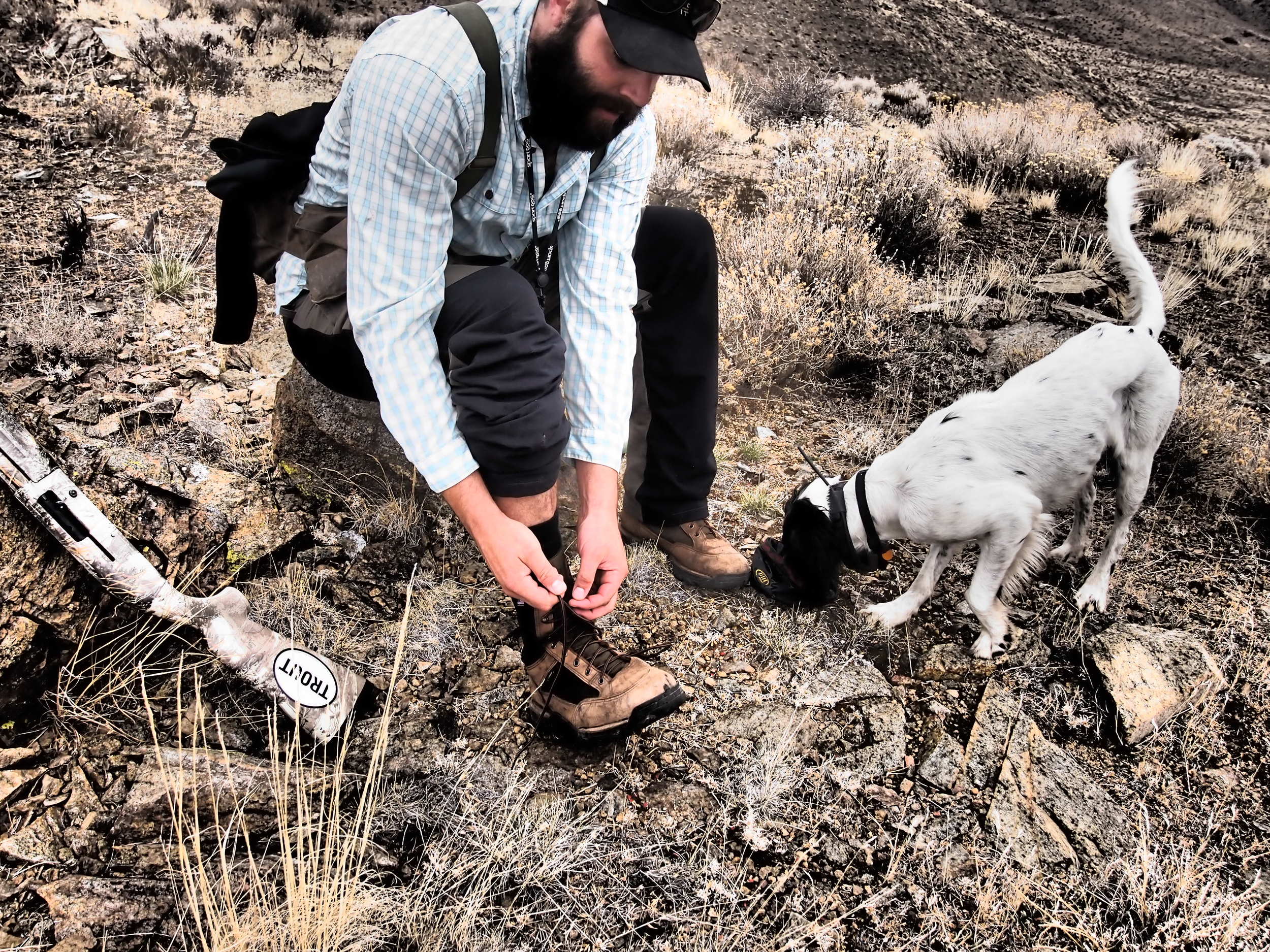
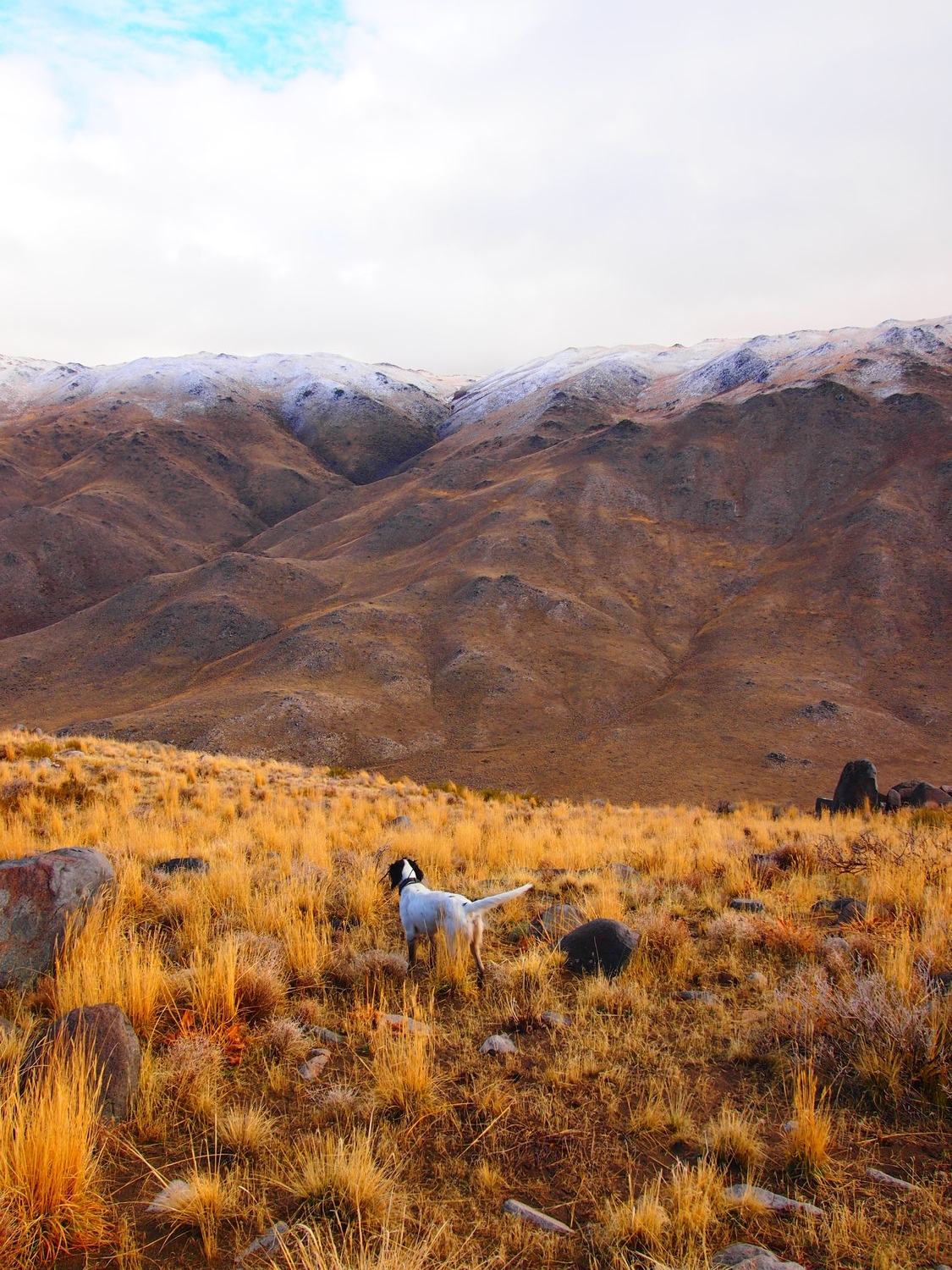
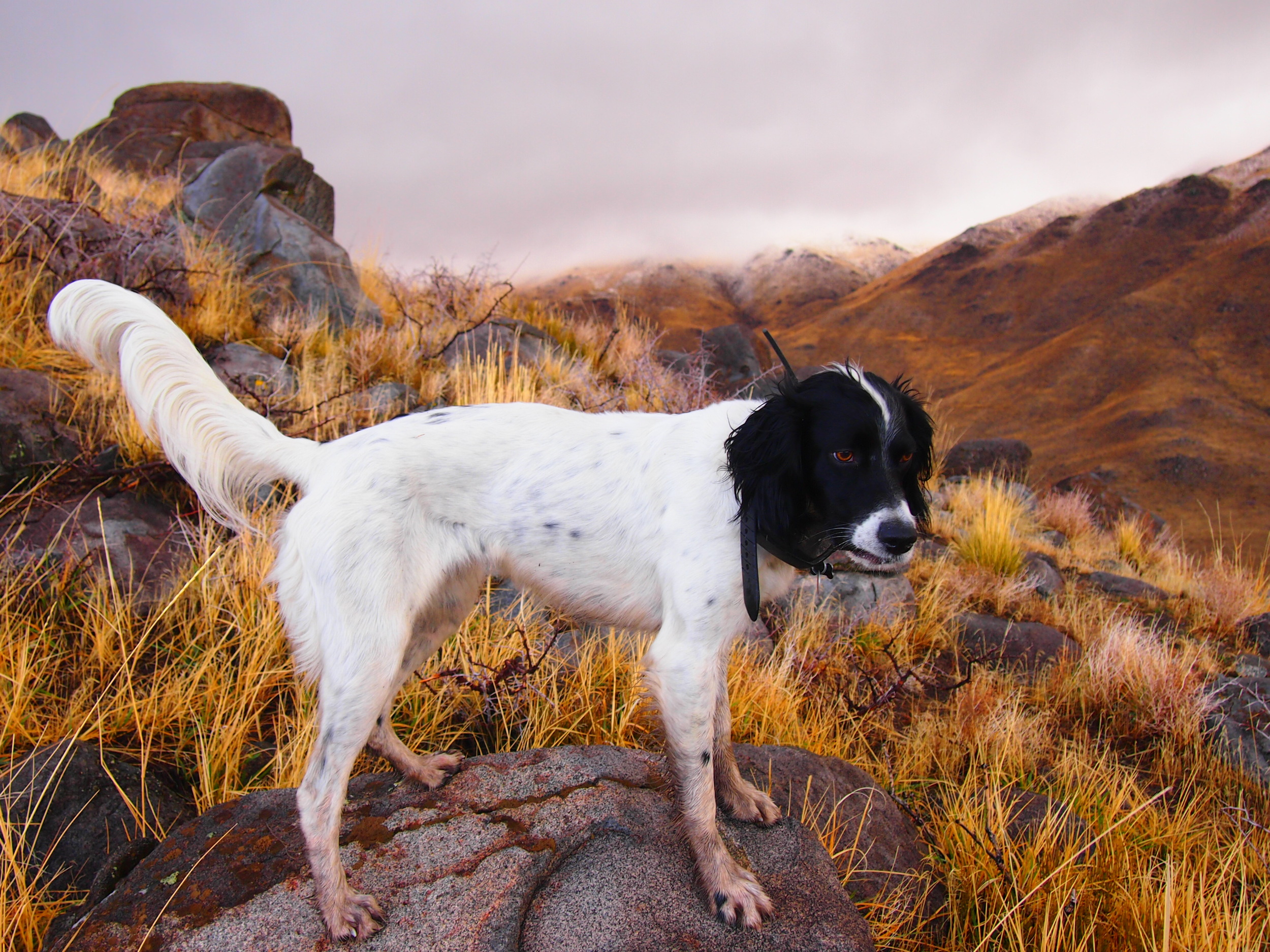
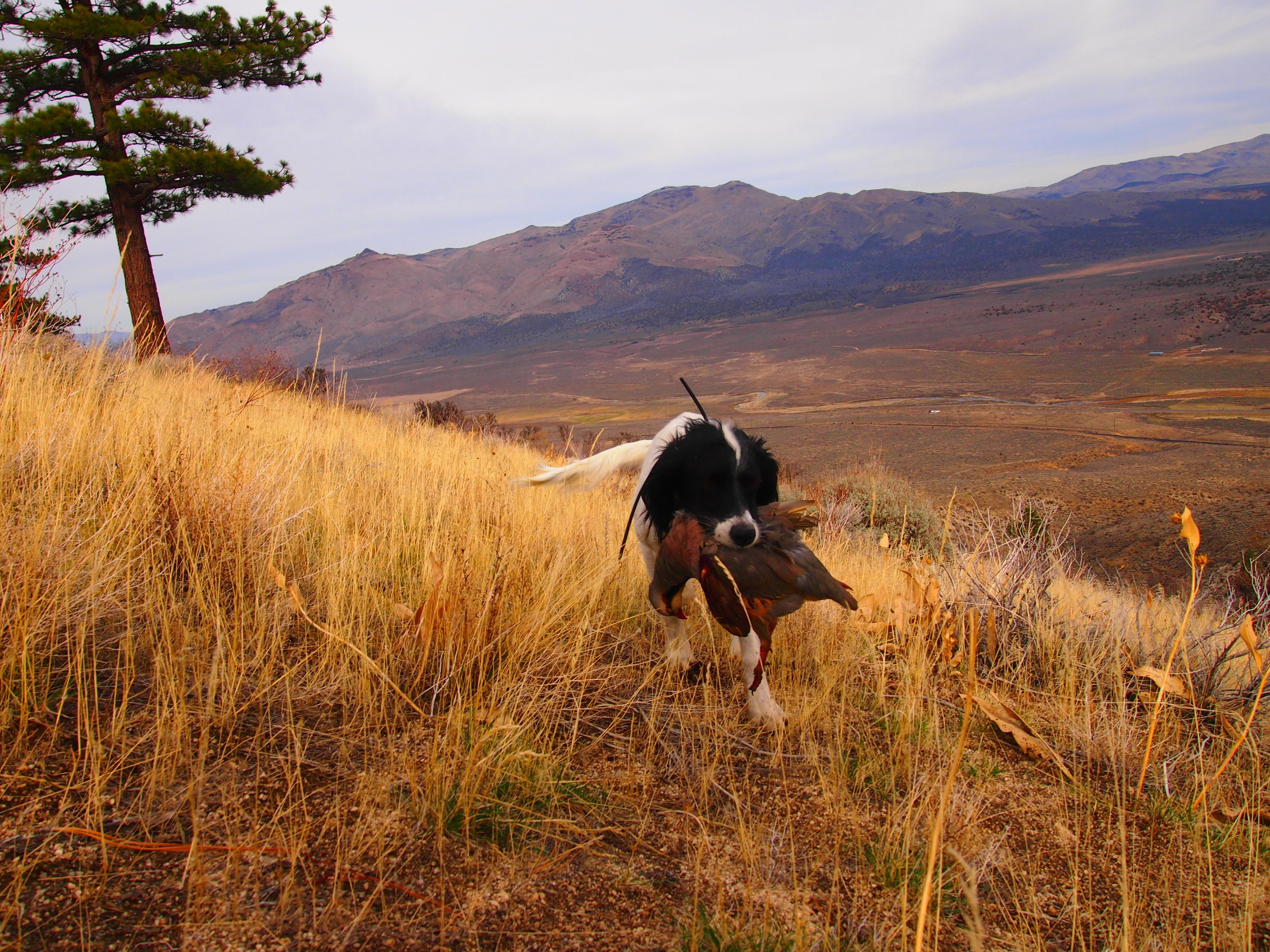
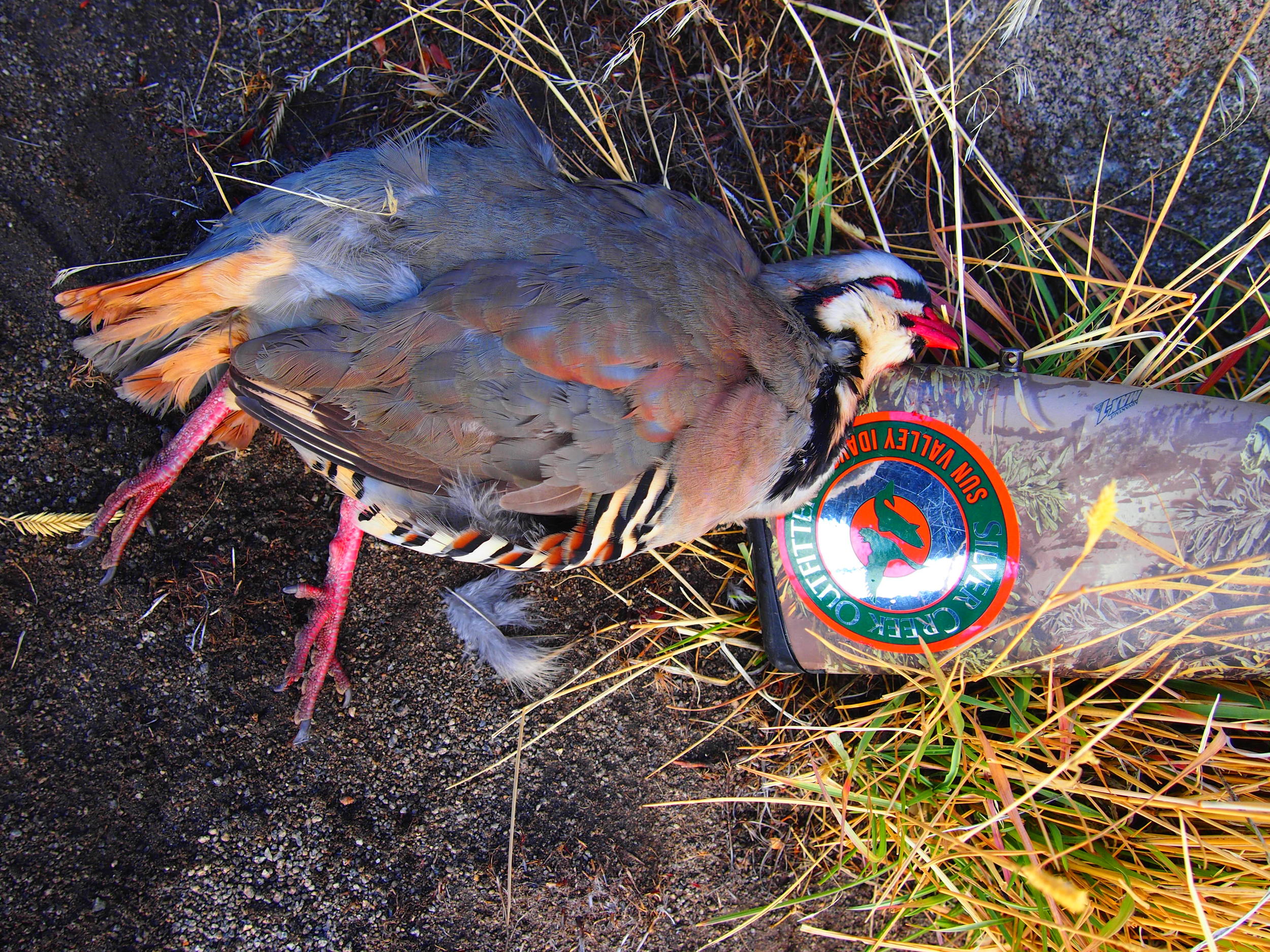
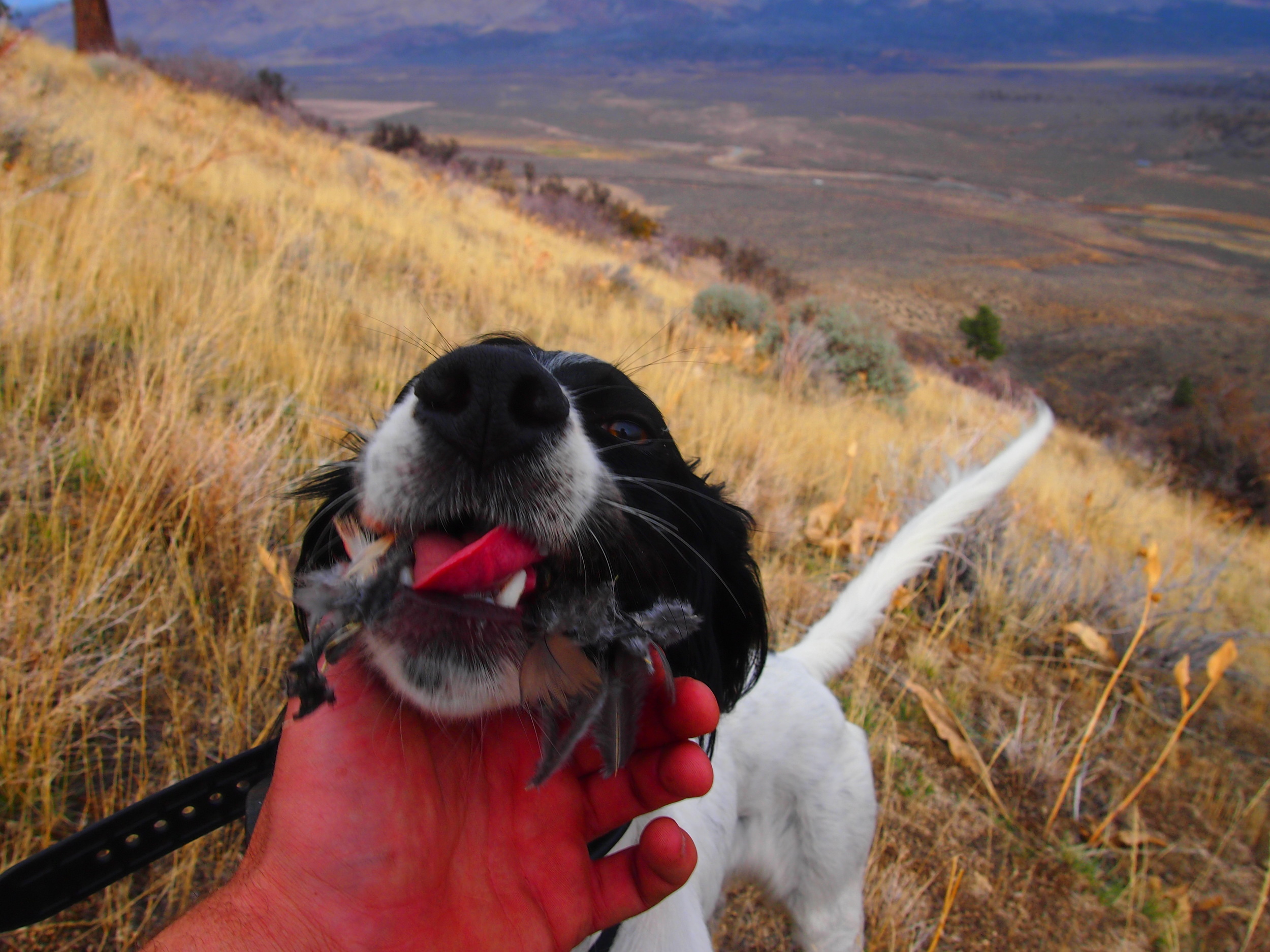
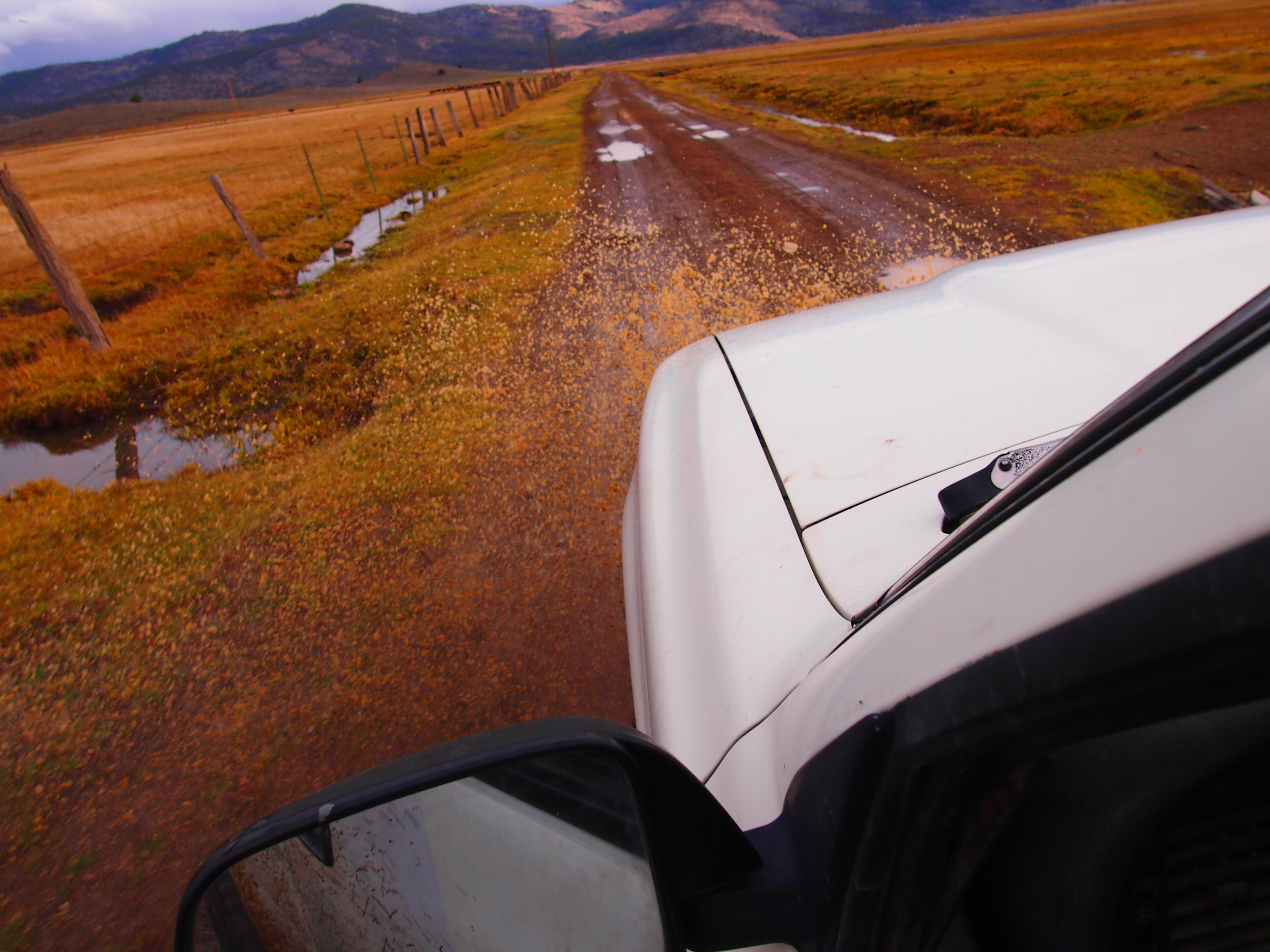
LARRY MCKURTIS is a writer and amateur photographer living in Northern Nevada. He prefers sleeping in the dirt, pushing himself to delirious exhaustion, and getting to the marrow of the matter at hand. Aside from writing he’s an avid cyclist, wood worker, hunter, and fly fisherman. These activities give him an excuse to travel and explore the American West and North America.
Website: red-legged-devils.com
Instagram: @crazyunclelarry


